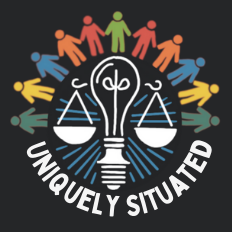Civic Engagement: Understanding Its Importance
Civic engagement is a fundamental element of a thriving democracy, serving as the vehicle through which individuals express their opinions, influence public policy, and effect change in their communities. By engaging civically, citizens uphold the democratic process and reinforce the principles of representation and accountability. It encompasses a wide range of activities that allow individuals to participate actively in the governance of their society. Common forms of civic engagement include voting, attending town hall meetings, advocacy campaigns, and community service initiatives.
Voting is one of the most powerful expressions of civic engagement. It provides citizens the opportunity to voice their preferences on elected representatives and key policy issues. Yet, civic engagement extends beyond the ballot box. Attending town hall meetings fosters direct communication between community members and their elected officials, enabling constituents to discuss local issues and express their concerns. Advocacy campaigns empower individuals to mobilize around specific causes, highlighting a collective voice that can drive significant political change. Each of these forms of engagement demonstrates how individuals can take an active role in shaping their communities.
Nonprofit organizations play a vital role in promoting civic engagement by educating community members about their rights and the importance of their involvement in shaping public policy. They often provide resources, training, and support for individuals seeking to navigate the civic landscape, from understanding voting processes to organizing grassroots campaigns. By fostering a sense of empowerment and ownership in the civic process, these organizations help create informed and engaged citizens who are motivated to participate actively in their democracy. Thus, civic engagement is not merely a personal responsibility but a collective endeavor that strengthens the foundations of society.
Fighting for Criminal Justice Reform: Strategies and Challenges
The urgency of criminal justice reform in contemporary society cannot be overstated. Nonprofit organizations are at the forefront of this critical movement, working tirelessly to address and rectify systemic issues that plague the justice system. Inequities related to race, socioeconomic status, and access to legal representation are rampant, often resulting in disproportionate incarceration rates among marginalized communities. These disparities highlight an immediate need for comprehensive reform, prompting nonprofits to adopt various strategies such as grassroots organizing, policy advocacy, and public awareness campaigns.
Grassroots organizing represents one effective approach used by nonprofit organizations to mobilize communities directly affected by these injustices. By fostering a sense of collective agency, nonprofits work to empower individuals to become advocates for change within their local contexts. This strategy not only amplifies the voices of those impacted but also enables organizations to gather valuable insights that inform their broader reform efforts. Additionally, policy advocacy initiatives play a crucial role in driving legislative change. Nonprofits collaborate with policymakers to develop evidence-based policies, aiming to dismantle oppressive structures within the criminal justice system.
Public awareness campaigns also serve to educate the general populace about the critical issues surrounding criminal justice reform. These campaigns leverage media outlets, social platforms, and community events to highlight stories of individuals affected by injustices, thereby cultivating empathy and understanding among broader audiences. However, nonprofit organizations face significant challenges amidst their reform efforts, including political resistance from entrenched interests and limitations in funding. Resources are often scarce, which can hinder the ability to maintain momentum for their initiatives.
Despite these challenges, individuals can support criminal justice reform by getting involved with nonprofit organizations in their communities, advocating for policy changes, or participating in fundraising efforts. The journey towards a more equitable justice system requires a collective, sustained effort, underscoring the importance of continued engagement from all sectors of society.
